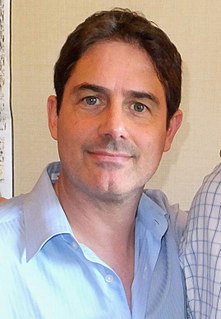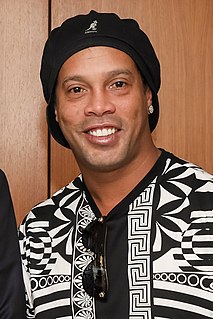A Quote by F. Scott Fitzgerald
I couldn’t forgive him or like him, but I saw that what he had done was, to him, entirely justified. It was all very careless and confused. They were careless people, Tom and Daisy—they smashed up things and creatures and then retreated back into their money or their vast carelessness, or whatever it was that kept them together, and let other people clean up the mess they had made.
Related Quotes
At school he had done things which had formerly seemed to him very horrid and made him feel disgusted with himself when he did them; but when later on he saw that such actions were done by people of good position and that they did not regard them as wrong, he was able not exactly to regard them as right, but to forget about them entirely or not be at all troubled at remembering them.
We pick up people dying full of worms from the street. We have picked up more than 40,000 of them. If I lift up such a person, clean him, love him and serve him, is it conversion? He has been there like an animal in the street but I am giving him love and he dies peacefully. That peace comes from his heart. That's between him and God.
Jon Krakauer had documented it very accurately and very well but this kid made a real impression on people, and likewise they on him. To talk to them was very moving in many cases because they talk about him like they saw him yesterday. In most cases they knew this kid for a couple of weeks in their whole life and he just lasted with them.
I did several shows with Jimi Hendrix, that's when I got to know him better, I knew of him, I met him [when he was playing] with Little Richard... And he was kind of quiet, shy, he didn't open up too much, but there were questions as we all ask each other. You know, "how do you do this" and "why do you do that..." We had very small discussions on things like that. And he was very polite, I thought [he was] a very nice guy.
I -- I alone know how to mourn for him as he deserves.' But while we were still shaking hands, such a look of awful desolation came upon her face that I perceived she was one of those creatures that are not the playthings of Time. For her he had died only yesterday. And, by Jove! the impression was so powerful that for me, too, he seemed to have died only yesterday -- nay, this very minute. I saw her and him in the same instant of time -- his death and her sorrow -- I saw her sorrow in the very moment of his death. Do you understand? I saw them together -- I heard them together.
"If it wasn’t for the mist we could see your home across the bay," said Gatsby. "You always have a green light that burns at the end of your dock." Daisy put her arm through his abruptly but he seemed absorbed in what he had just said. Possibly it had occurred to him that the colossal significance of that light had now vanished forever. Compared to the great distance that had separated him from Daisy it had seemed very near to him, almost touching her. It had seemed as close as a star to the moon. Now it was again a green light on a dock. His count of enchanted things had diminished by one.
Call saw that everyone was looking at him, the hands and cowboys and townspeople alike. The anger had drained out of him, leaving him feeling tired. He didn't remember the fight, particularly, but people were looking at him as if they were stunned. He felt he should make some explanation, though it seemed to him a simple situation. "I hate a man that talks rude," he said. "I won't tolerate it.
Even if you find him. Even if he didn't leave you on purpose, he can't possibly live up to the person you've built him into." It's not like the thought hasn't occurred to me. I get that the chances of finding him are small, but the chances of finding him as I remember him are even smaller. But I just keep going back to what my dad always says, about how when you lose something, you have to visualize the last place you had it. And I found?and then lost?so many things in Paris.
He was in a room of the Gesshuuji, which he had thought it would be impossible to visit. The approach of death had made the visit easy, had unloosed the weight that held him in the depths of being. It was even a comfort to think, from the light repose the struggle up the hill had brought him, that Kiyoaki, struggling against illness up that same road, had been given wings to soar with by the denial that awaited him.





































